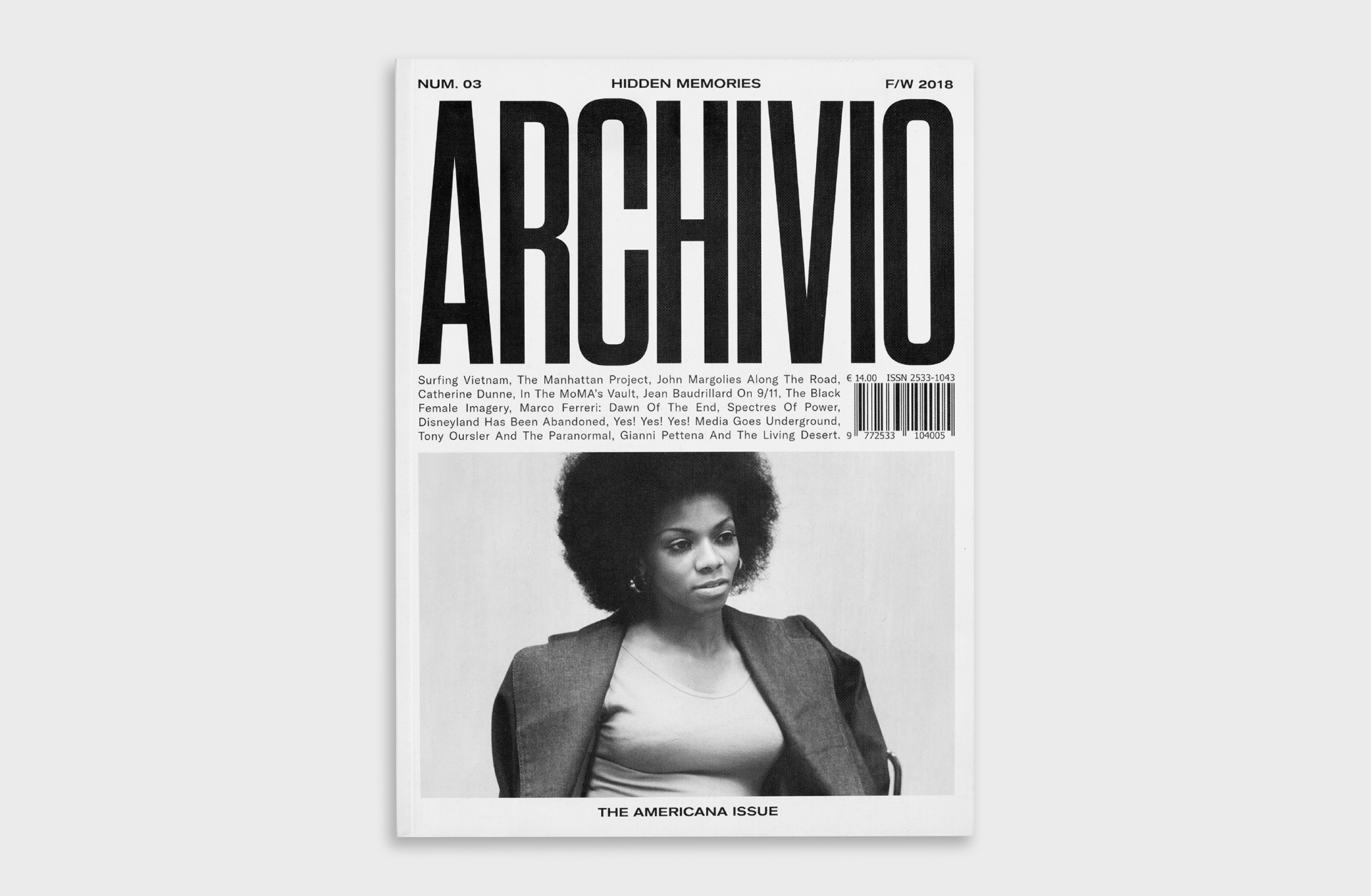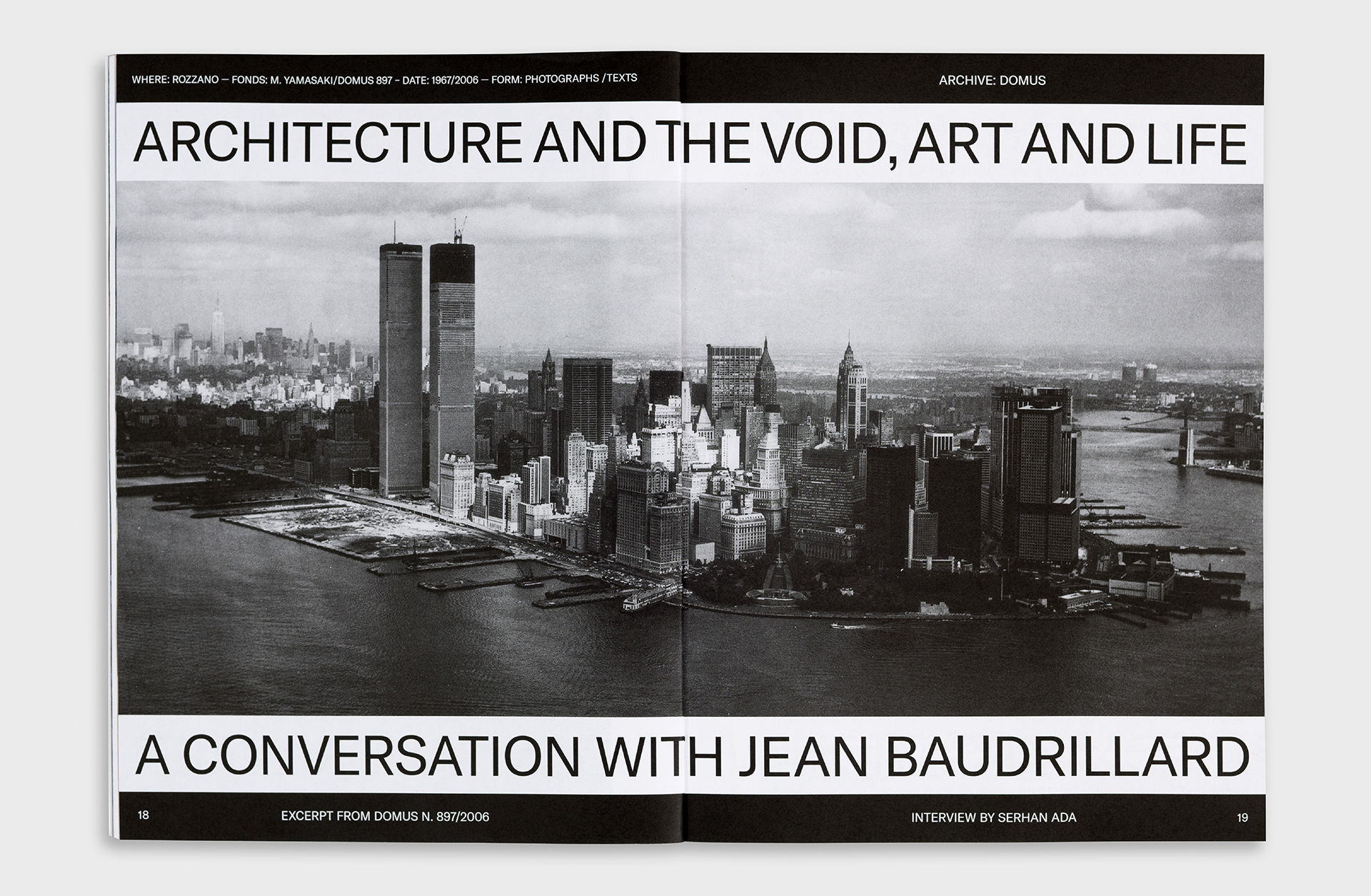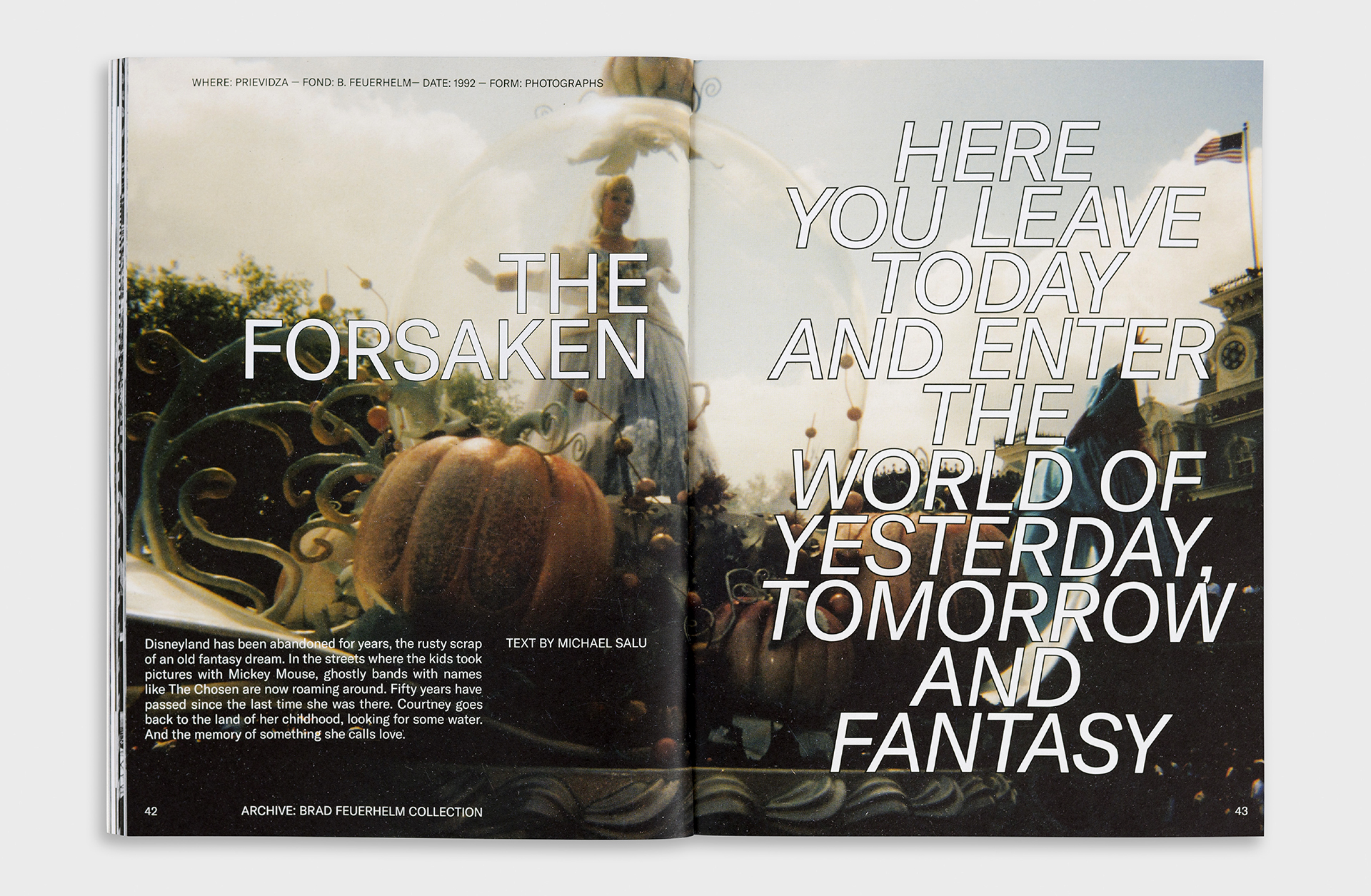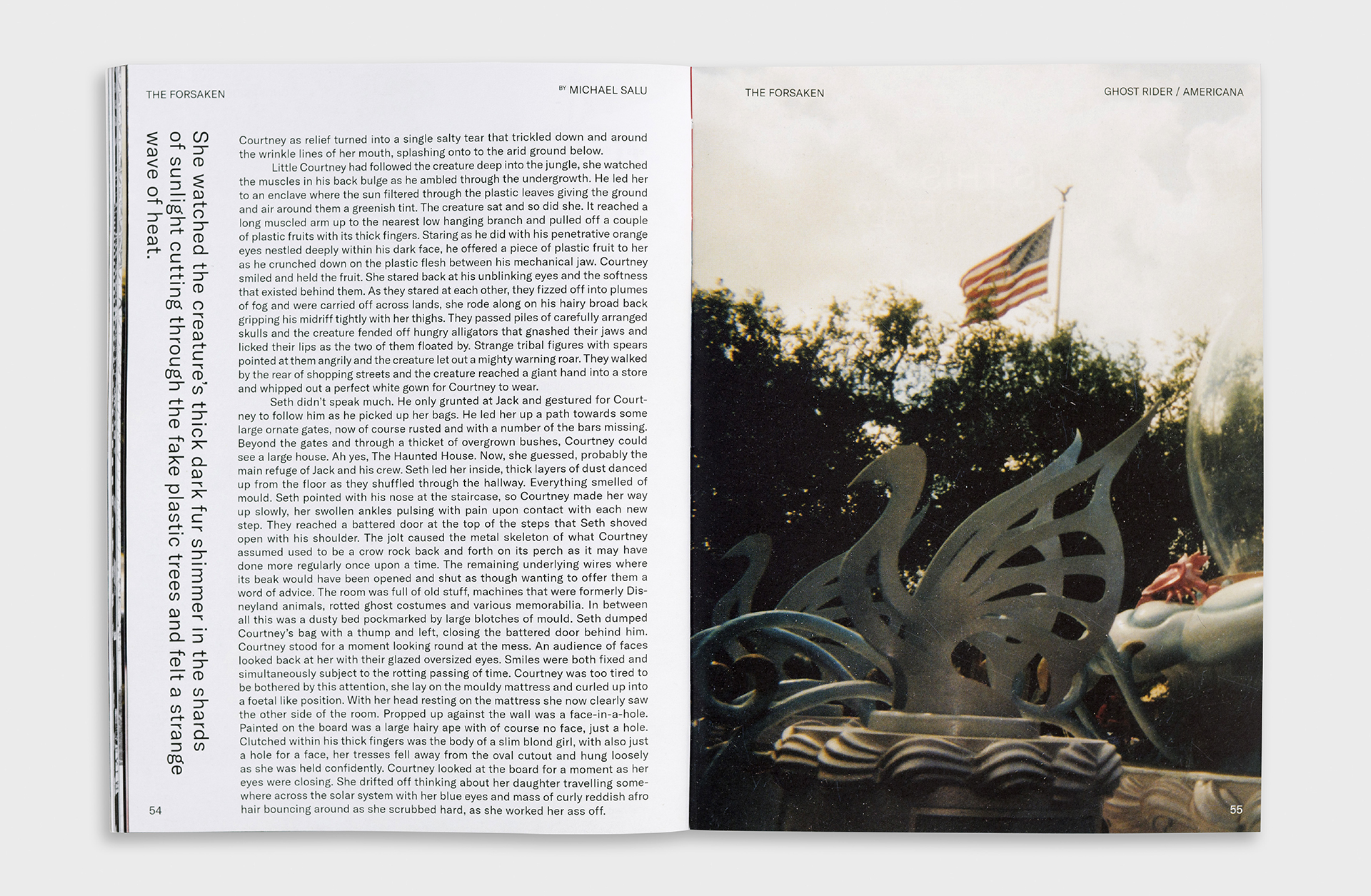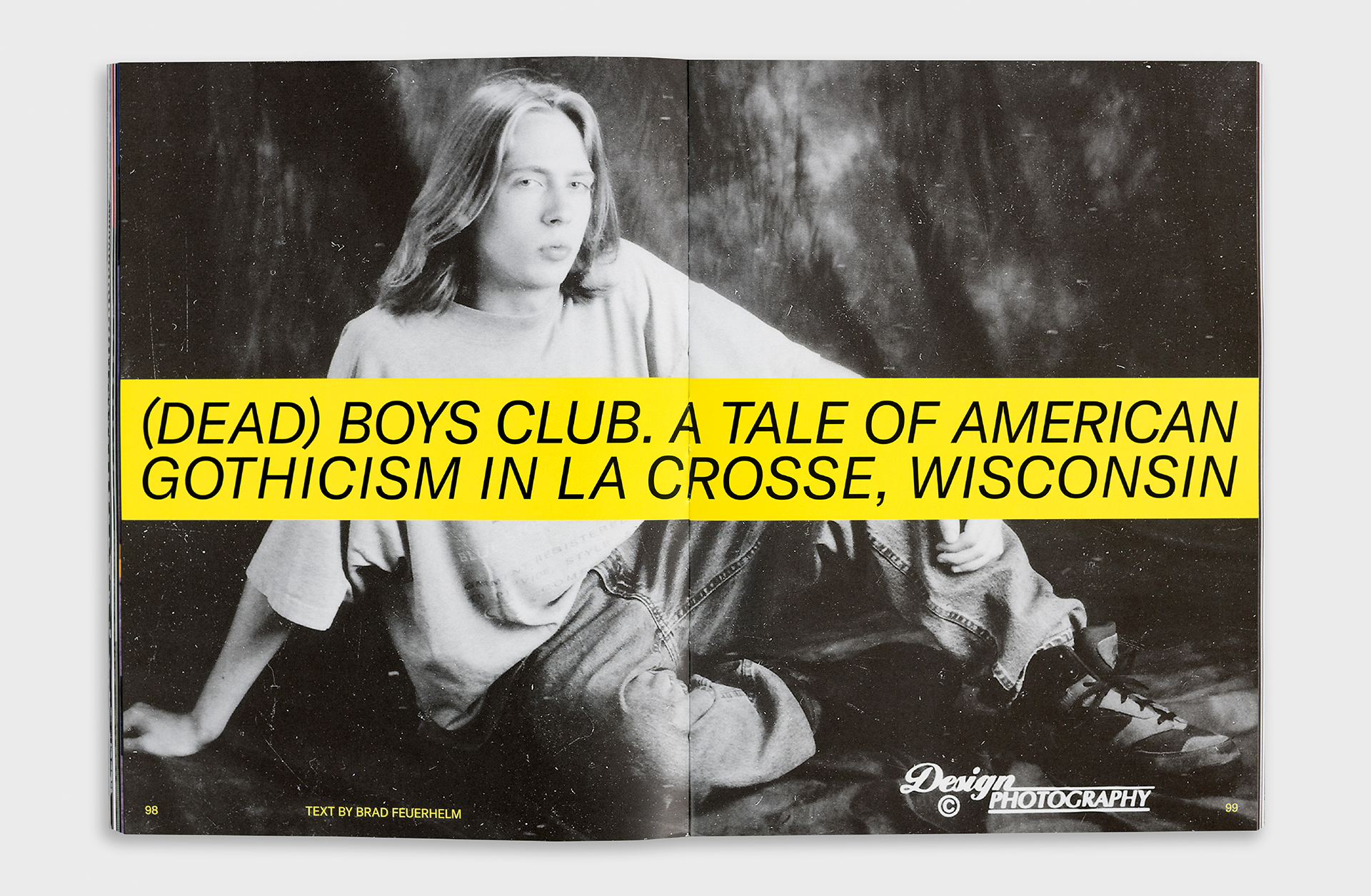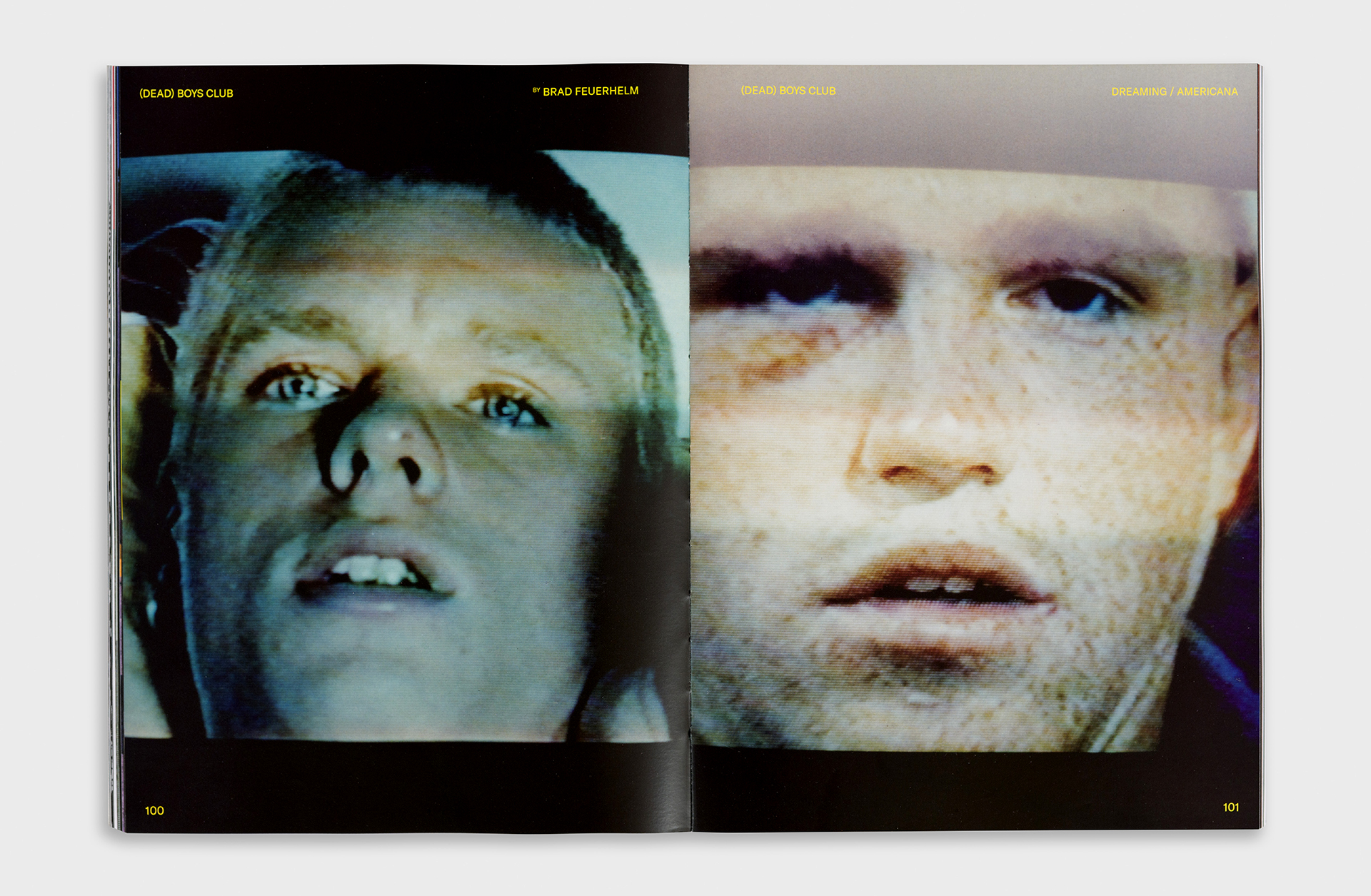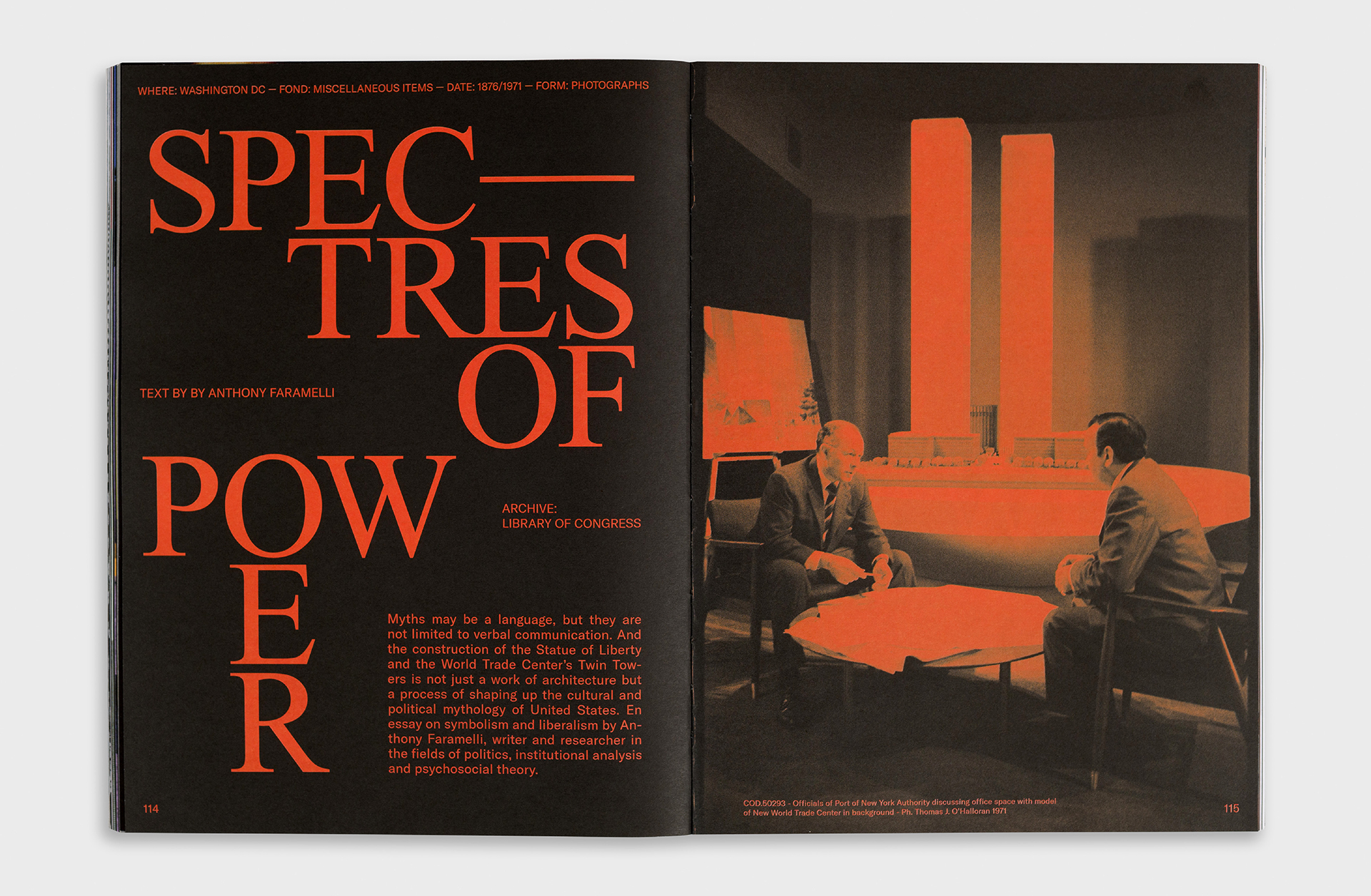Archivio Issue 3
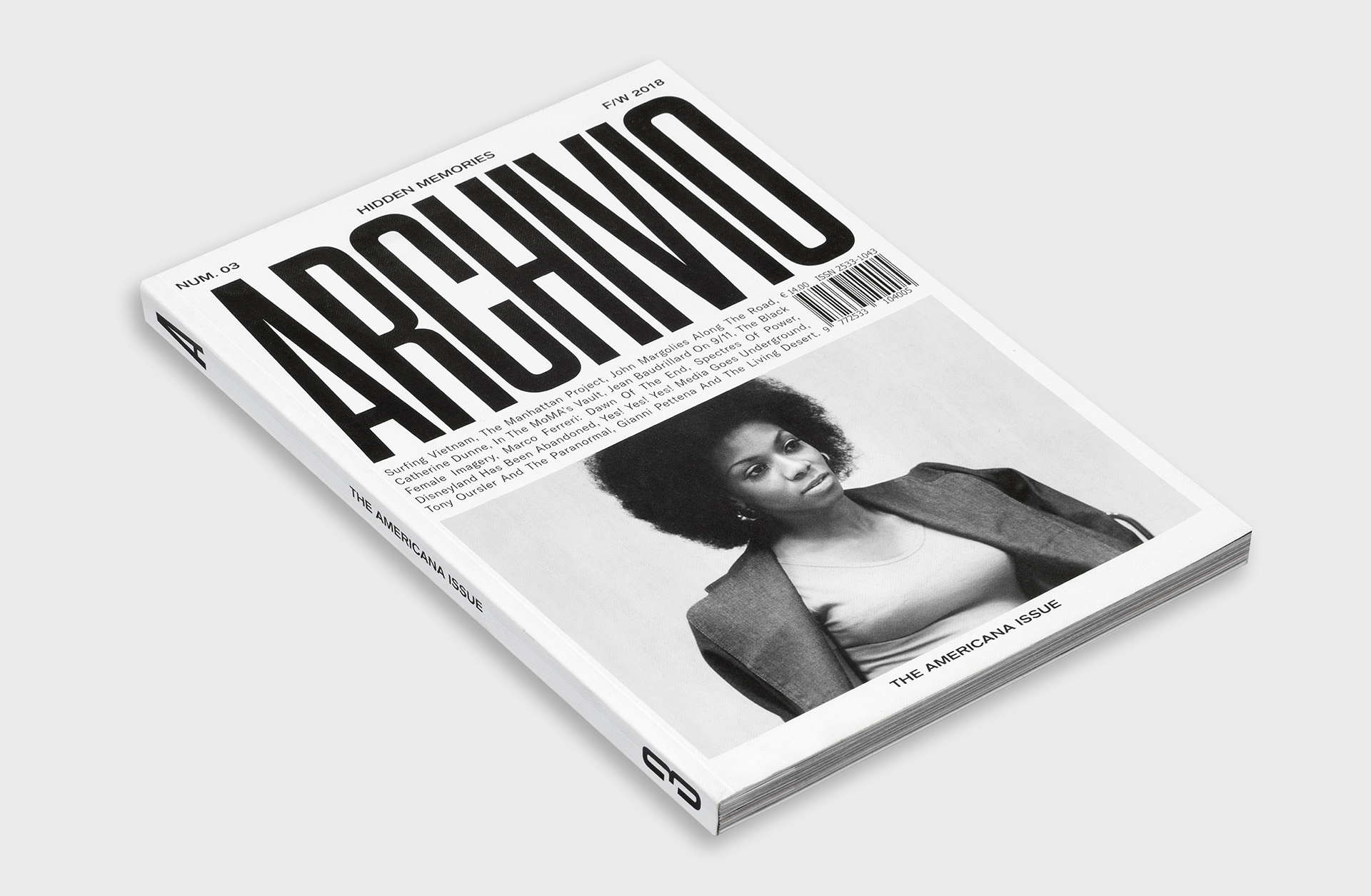
‘The Americana Issue’: or, speaking of twentieth-century America to get an outline of the present and investigating modern America to understand the contemporary nation. For this third issue, the editors immediately started off by stating how outward-looking and present outside itself America is. This form of ‘dispersion’ of the American state in Western culture and in both historical and private archives, paving the way to a debate on cause and effect, can be dated to the US entrance into European culture in 1947, when US secretary of state George Marshall announced the launch of his European Recovery Plan, aka the Marshall Plan. From then on, the American spirit has seductively flooded the West, perhaps because, as Jean Baudrillard says in his book America, ‘America ducks the question of origins; it cultivates no origin or mythical authenticity; it has no past and no founding truth. Having known no primitive accumulation of time, it lives in a perpetual present.’ Indeed, the spirit running through the twentieth century to the present day is American; the crisis of Western values since the fall of the Twin Towers is American; the concept of freedom imported from a country which might not be so free after all is American; the liberalism and neoliberalism that led the West into crisis are American; the processing of past and present is American; the tensions and repercussions of the Cold War and the strengthening of collective uncertainty are American. American culture is a trigger behind events spanning the twentieth century, from the dark images of an abandoned Disneyland in the words of Michael Salu, to the photographic documents of soldier surfers in Vietnam. The issue also includes an aesthetic investigation into the vision of black beauty since the 1960s as seen through the archive of the Johnson Publishing Company, to arrive at the essay by Anthony Faramelli on the visualism of American power and the words of Achille Filipponi on ‘Ciao Maschio’, the paradigmatic film by Marco Ferreri which bids farewell to the twentieth century and modern man in a deserted and dark New York City. Through artificial cities, built to build the biggest bomb, through unreal architectures, like in the photos of John Margolies, we enter a dark America which peaks with the noir of La Crosse (Wisconsin) in the portraits and reconstruction of Brad Feuerhelm. Jacques Derrida maintains that archive documents are supports for opening a dialogue with the past and so evidence becomes a tool through which historical accounts enlighten and remodel time, building a common ground between past and present. Americana is the confirmation of Derrida’s theory: the issue recounts a country that is not outlined by borders, but is now rooted in contemporary culture, an indelible component of the popular imagination and global politics.
